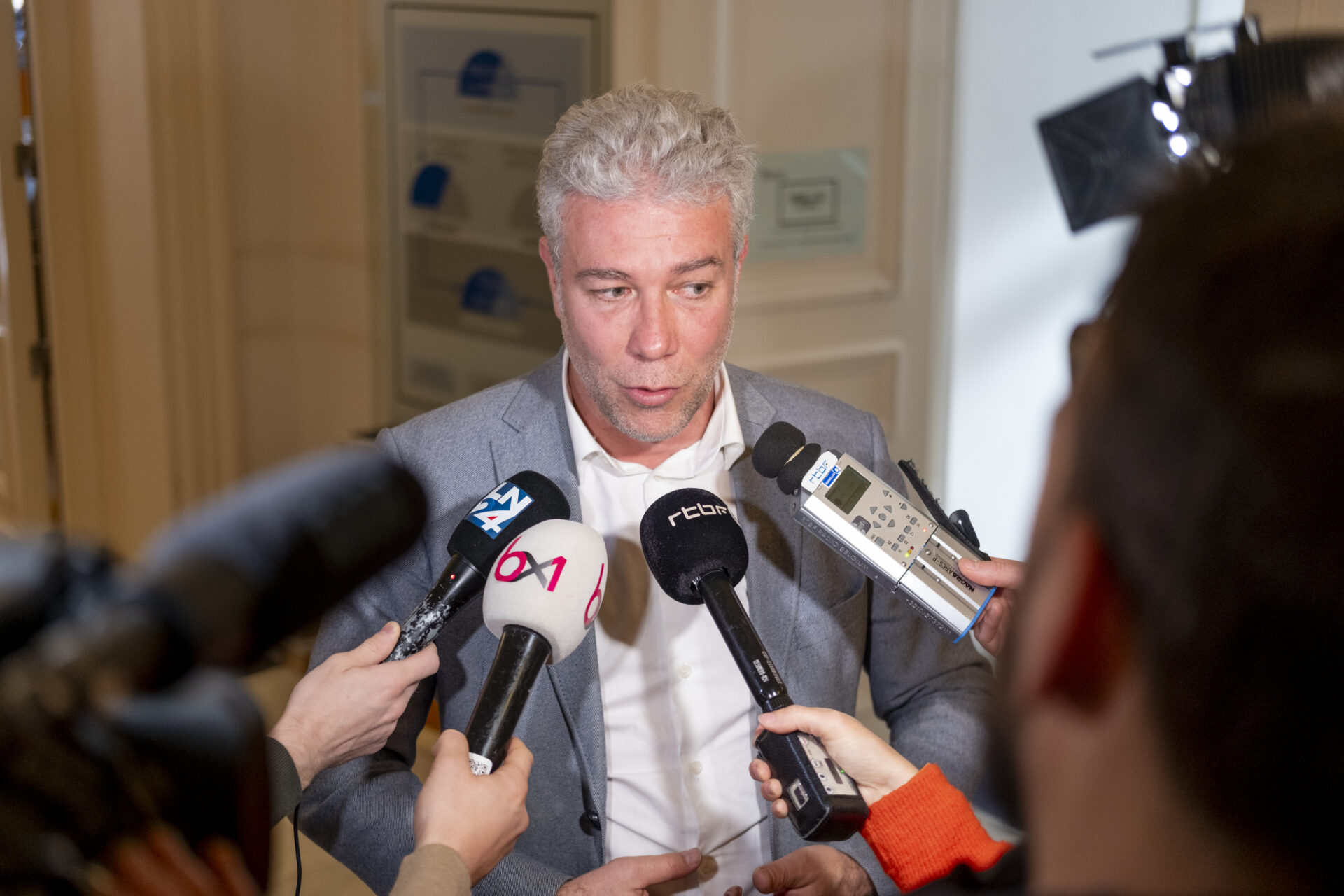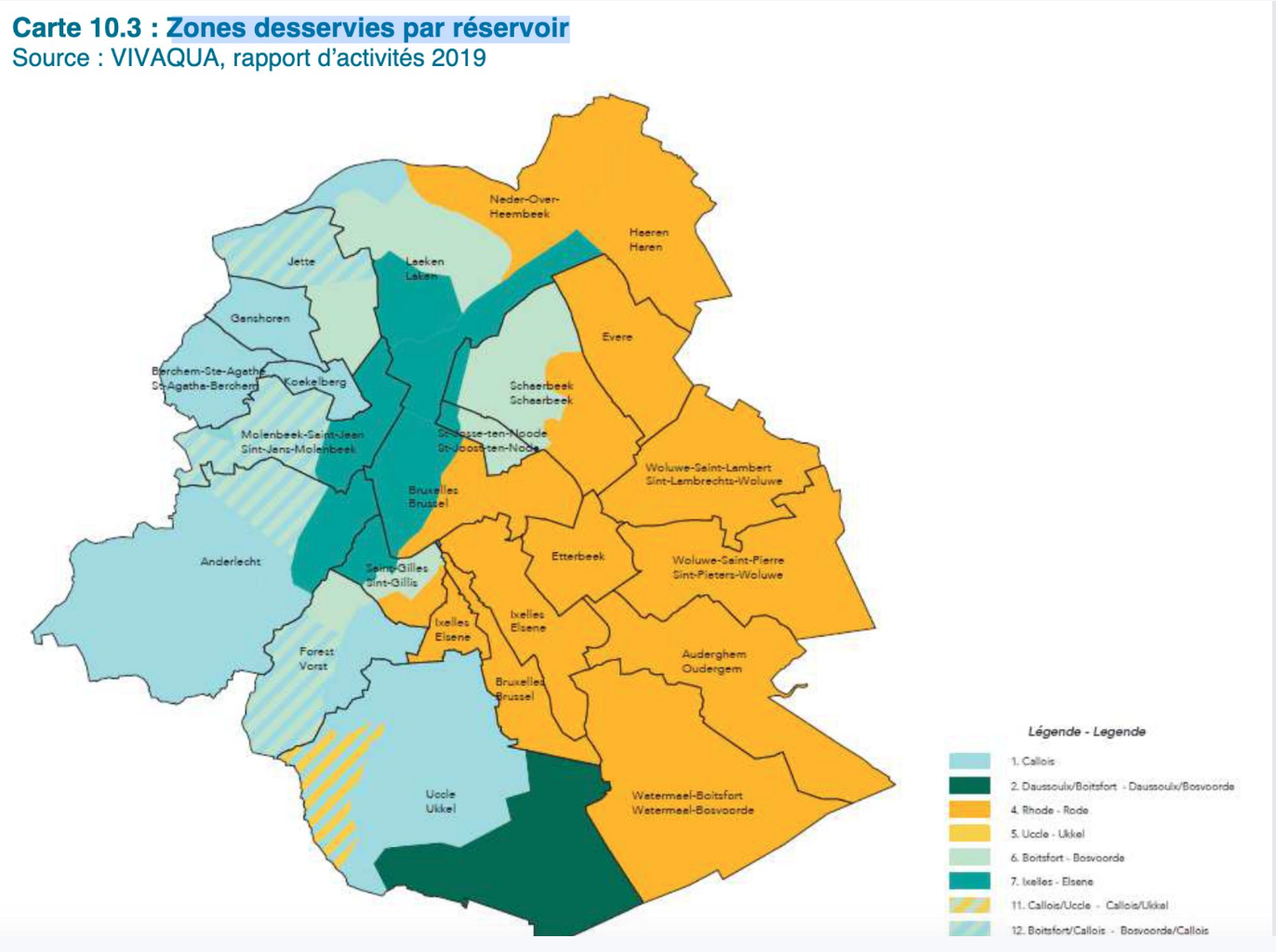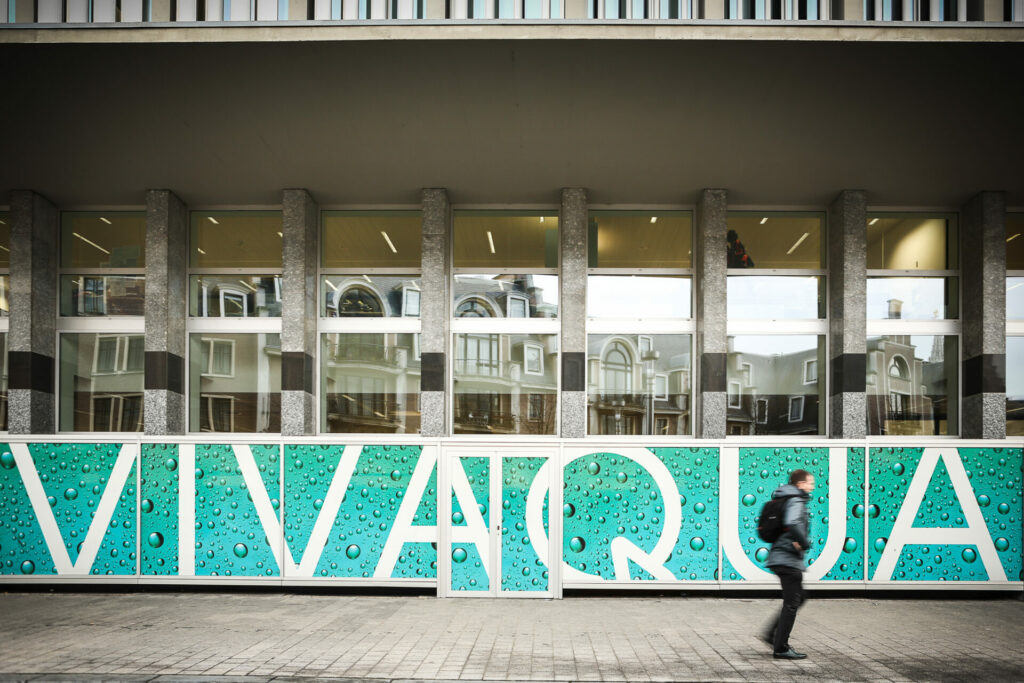Brussels Environment Minister Alain Maron has expressed his openness to reinforcing safety measures in the water network to avoid elevated levels of PFAS 'forever' chemicals polluting the Brussels tap water.
"Protecting the health of the people of Brussels is a priority for me and for water operators," Maron said after speaking on BX1 radio.
Maron met with officials from the water network Vivaqua this week to take stock of the situation of PFAS pollution in the water network, and carried out an in-depth examination of the quality of the water distributed in the Belgian capital.
The minister's office was keen to reassure the public, stressing to the Belga News Agency that the water situation in Brussels is "entirely reassuring".
"Water quality in Brussels already meets very high standards, but I intend to continue our efforts to reduce the presence of PFAS and other pollutants as much as possible," he said.

Brussels Environment Minister Alain Maron speaks to reporters after meeting Vivaqua officials. Credit: Belga / Hatim Kaghat
The minister said that he was in favour of tightening the monitoring thresholds and introducing an "over-precautionary" measure.
"We want to put in place a system which, as far as possible, will enable us not to exceed the 4ng/l threshold for the 4 PFAS considered scientifically to be the most problematic. But the details are not clear, because measuring '4 billionths' of a gram per litre is very complicated", the Minister told BX1.
We are therefore moving towards a recommendation not to exceed this threshold - as in Flanders, where it is an obligation of means and not an obligation of results - but we cannot talk about a standard as such, as is the case in Denmark.
"Unfortunately, pollution is spreading. That's where the real battle lies. Manufacturers must stop releasing pollutants like PFAS and glyphosate into the environment, where they end up in our soil and water,” the Minister, who is a member of the French-speaking Greens (Ecolo), said.
Situation in Brussels
The Belgian capital is supplied by various water reservoirs: Callois (Braine l’Alleud) ;Daussoulx/Boitsfort; Rhode-Saint-Genèse; Uccle; Boistfort and Ixelles.

Credit: Vivaqua (Activity Report 2019)
The map has revealed major disparities of water quality between the various municipalities in the Brussels-Capital Region.
The water from the Rhode reservoir, which supplies more than half the population of Brussels, is of poorer quality than that which reaches taps in other areas.
"The PFAS4 level detected in the Rhode reservoir far exceeds the Danish standard (2 ng/l) and the indicative threshold set in Flanders (4 ng/l)," MP Christophe De Beukelaer (Les Engages), who shared the figures, said last week. Between October 2021 and October this year, the average concentration of PFAS4 reached 6.9 ng/l in this reservoir, which supplies over half of Brussels' taps.
The Callois and Uccle reservoirs, which supply the other half of the capital's residents, also contain concentrations above Danish standards but below the recommended levels – and are still much lower than those detected in the Rhode reservoir.
So is your water safe? Most likely yes, but a new interactive map developed by RTBF gives an overview of the situation in Brussels.
If people wish to know if their street and municipality's water is safe, Vivaqua has developed a tool where you can enter your address to see the levels of pollution.

